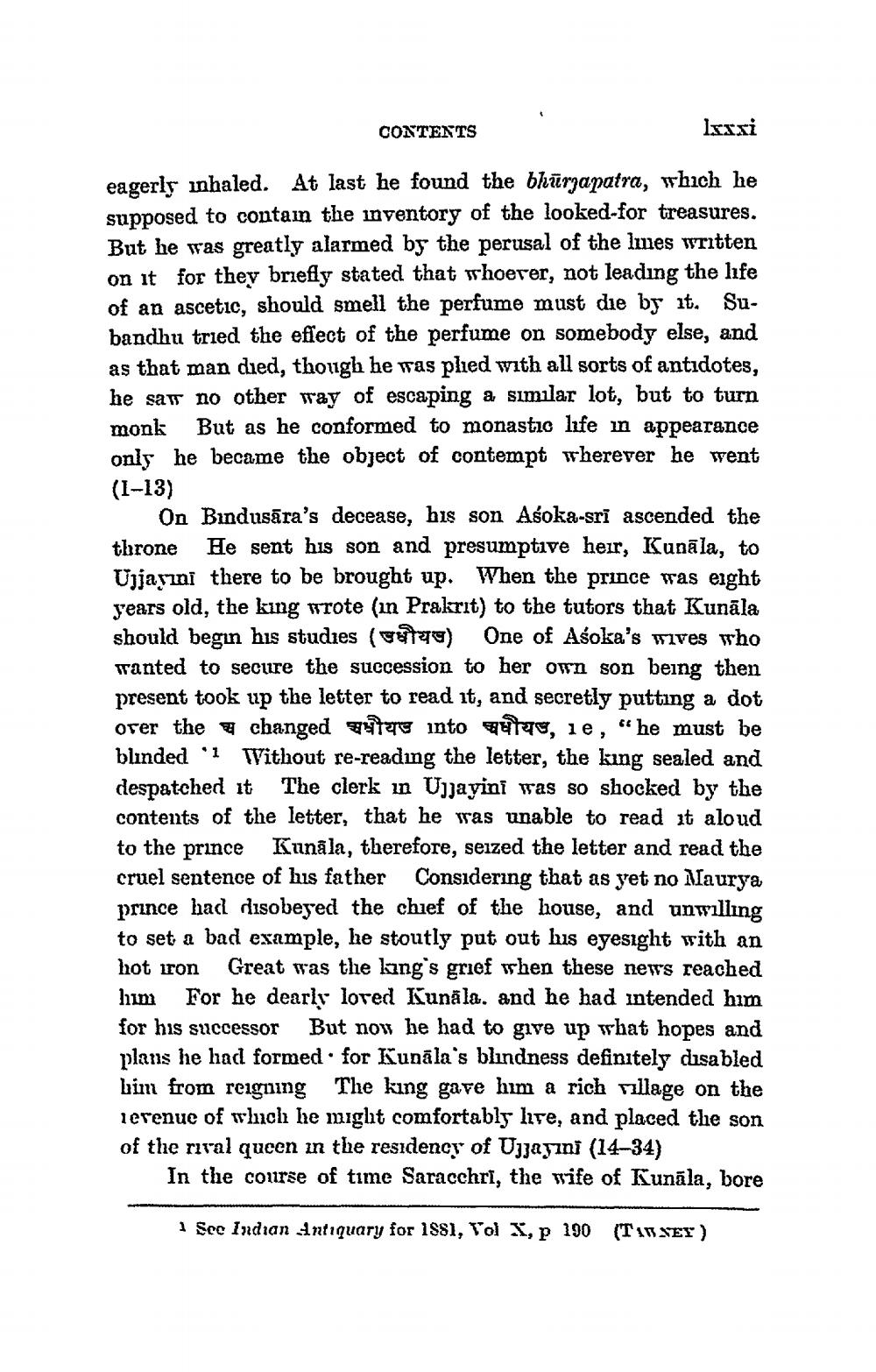________________
CONTENTS
lxxxi
eagerly inhaled. At last he found the bhurgapatra, which he supposed to contain the inventory of the looked-for treasures. But he was greatly alarmed by the perusal of the lmes written on it for they briefly stated that whoever, not leading the life of an ascetic, should smell the perfume must die by it. Subandhu tried the effect of the perfume on somebody else, and as that man died, though he was plied with all sorts of antidotes, he saw no other way of escaping a similar lot, but to turn monk But as he conformed to monastic life in appearance only he became the object of contempt wherever he went (1-13)
On Bindusara's decease, his son Aśoka-sri ascended the throne He sent his son and presumptive heir, Kunāla, to Ujjayini there to be brought up. When the prince was eight years old, the king wrote (in Prakrit) to the tutors that Kunāla should begin his studies (उधौयड) One of Aśoka's wives who wanted to secure the succession to her own son being then present took up the letter to read it, and secretly putting a dot over the च changed अधीय into चधौयड, ie, "he must be blinded '1 Without re-reading the letter, the king sealed and despatched it The clerk in Ujjayini was so shocked by the contents of the letter, that he was unable to read it aloud to the prince Kunala, therefore, seized the letter and read the cruel sentence of his father Considering that as yet no Maurya prince had disobeyed the chief of the house, and unwilling to set a bad example, he stoutly put out his eyesight with an Great was the king's grief when these news reached him For he dearly loved Kunala. and he had intended him for his successor But now he had to give up what hopes and plans he had formed for Kunala's blindness definitely disabled him from reigning The king gave him a rich village on the evenue of which he might comfortably hire, and placed the son of the rival queen in the residency of Ujjayini (14-34)
hot iron
In the course of time Saracchri, the wife of Kunala, bore
1 See Indian Antiquary for 1881, Vol X, p 190 (TAWNEY)




